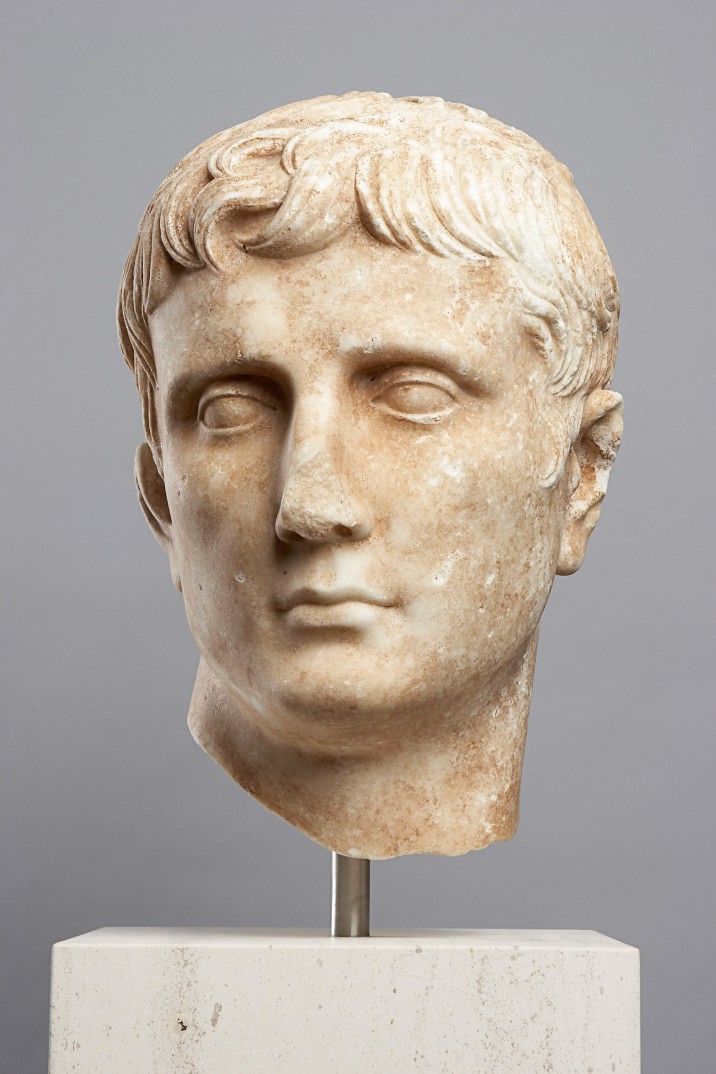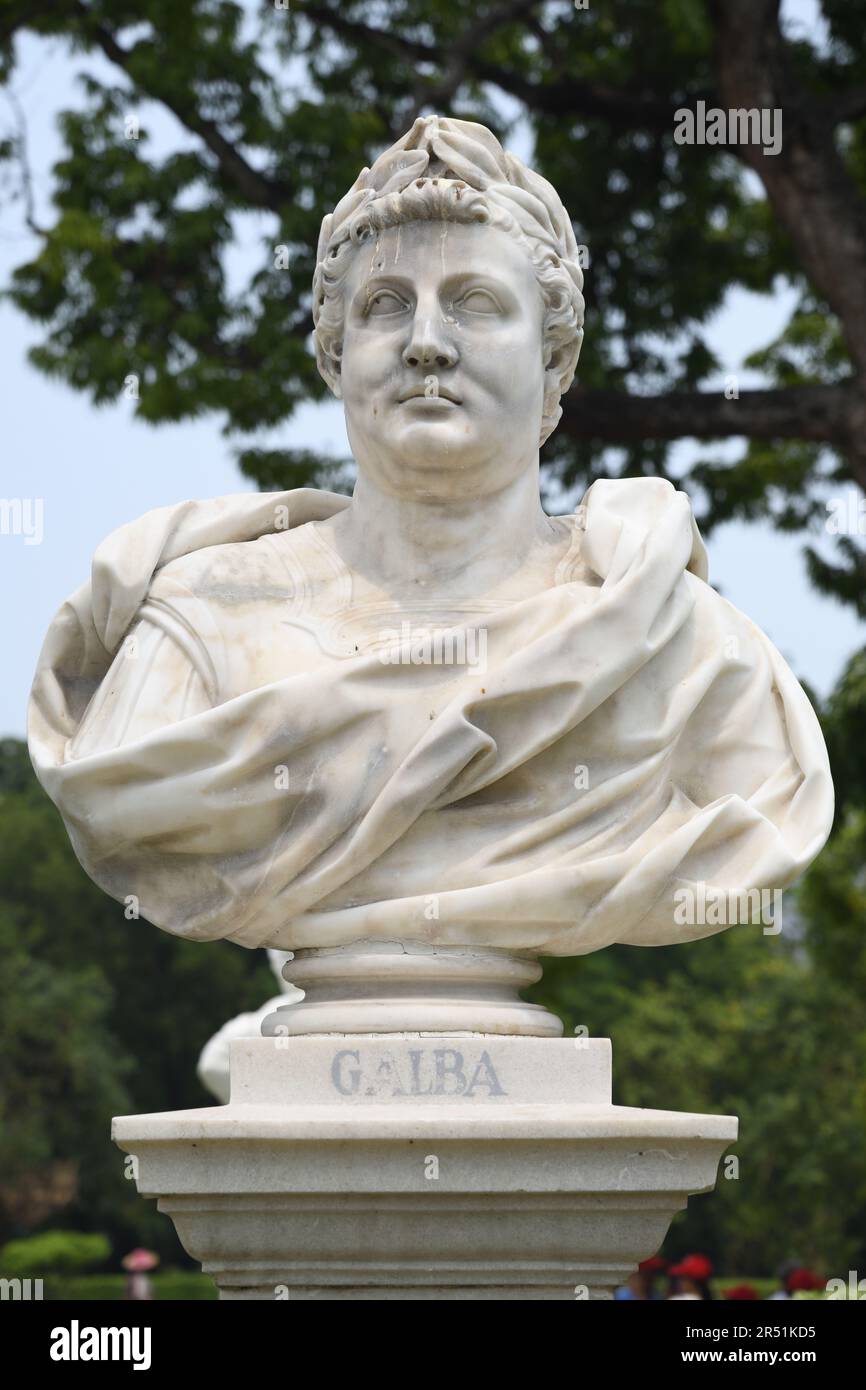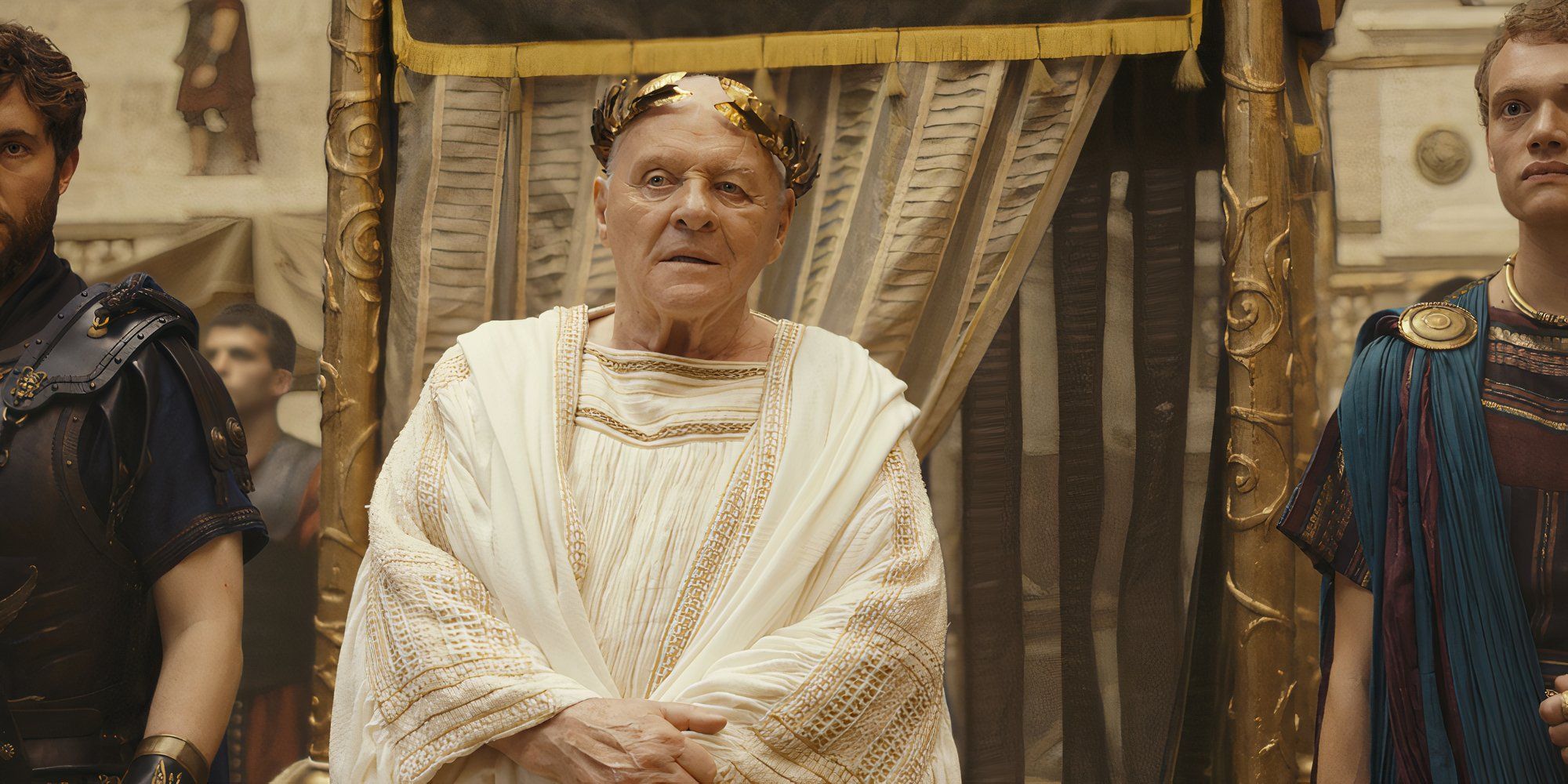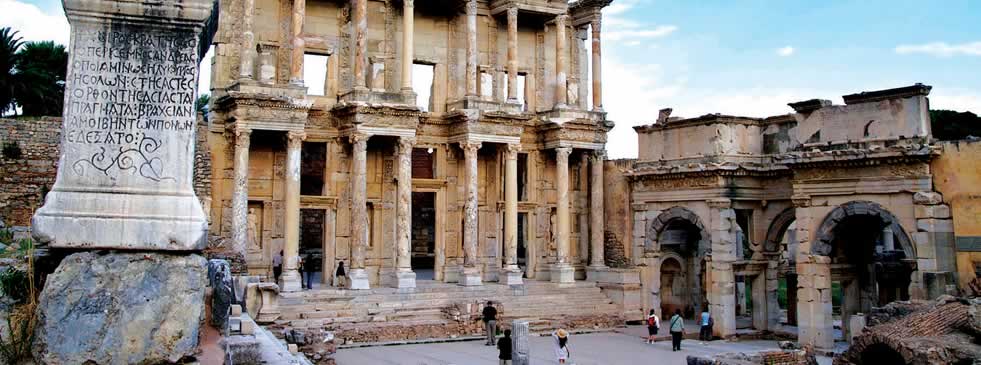Praetorian Prefect Burrus: Guardian of Imperial Stability
The intricate tapestry of Ancient Rome's history is woven with figures whose influence, though often shadowed by emperors and military campaigns, played critical roles in shaping the empire's fate. One such indispensable figure is Sextus Afranius Burrus, a man whose steadfast dedication and astute political acumen positioned him at the heart of Roman power during a pivotal era. As the Praetorian Prefect, Burrus walked a fine line between loyalty to the emperor and the pursuit of peace and prosperity for Rome.
Early Life and Rise to Power
Little is known about the early years of Sextus Afranius Burrus, but what can be pieced together from historical texts suggests a journey marked by ambition, intelligence, and a strategic ascent through the Roman military ranks. Born to a family of equestrian status, Burrus's initial steps on the path to prominence were likely shaped by a combination of personal abilities and strong social connections — a vital combination for success in the Roman hierarchy.
Under the reign of Emperor Claudius, the political climate of Rome was one of transformation, where positions of power fluctuated with the whims of the emperor and the machinations of those around him. It was within this dynamic environment that Burrus found his niche. His military prowess and reputation as a loyal servant to the state did not go unnoticed. Gaining the trust of Claudius, Burrus was appointed as Praetorian Prefect, assuming command of the Praetorian Guard, the elite unit tasked with the protection of the emperor.
Role of the Praetorian Prefect
The position of Praetorian Prefect was one laden with both responsibility and peril. Commanding the Praetorian Guard entailed ensuring the emperor's safety, but it also placed Burrus amid the complex web of Roman politics. The guard was known for its influence, often serving as the kingmaker in the succession struggles that punctuated Roman imperial history.
Burrus's appointment marked a turning point in the structure and function of the Praetorian Guard. He implemented reforms that enhanced discipline and loyalty within the ranks, transforming the unit into a more cohesive and effective force. Burrus recognized that stability within the Guard was synonymous with stability within the empire. His leadership style was characterized by fairness and discipline, fostering a sense of loyalty among his men, an achievement that would prove essential during the tumultuous times ahead.
Burrus and the Reign of Nero
Burrus's tenure as Praetorian Prefect coincided with the rise of Nero, one of Rome's most enigmatic emperors. The transition from Claudius to Nero in 54 AD was carefully orchestrated, with Burrus playing a pivotal role. Alongside Nero’s influential advisor Seneca, Burrus acted as a stabilizing force, guiding the young emperor through the early years of his reign.
This partnership between Burrus, Seneca, and Nero was one of mutual benefit. While Nero provided the imperial legitimacy, Burrus ensured the emperor's safety and stability, and Seneca offered intellectual and rhetorical guidance. Together, they sought to moderate Nero's excesses and navigate the political complexities of the Roman court.
Burrus's influence extended beyond military matters; he was integral in shaping policy, often acting as a mediator between the emperor and the Senate. His cautious approach and emphasis on balance ensured that Nero's initial years were relatively successful, fostering a period of relative peace and prosperity within the empire.
Challenges and Political Intrigue
Despite the initial harmony, Burrus's role was not without its challenges. The Roman court was a hotbed of intrigue, where alliances shifted as quickly as the tide. Burrus's relationship with Nero became increasingly strained as the emperor's behavior grew more erratic and unpredictable. The young emperor's fascination with the arts and his penchant for lavish extravagance often clashed with the prudent governance advocated by Burrus and Seneca.
Rumors of plots and conspiracies were rife, and Burrus found himself navigating a treacherous landscape where loyalty was as tenuous as a sparrow's flight. His position required constant vigilance, balancing the demands of the emperor with the expectations of Rome’s political elite.
Still, Burrus remained a staunch advocate for moderation and peace. His diplomatic skills were put to the test as he strove to maintain Nero's favor while protecting the interests of Rome. Despite his dedication, the pressures of court life were unrelenting, testing the limits of his influence and patience.
The Influence of Burrus: Balancing Power
Sextus Afranius Burrus was more than a mere guardian of the emperor; he became a pivotal figure in shaping imperial policy, eclipsing the traditional role of a military leader to become a key statesman in Nero's court. His influence was evident in his efforts to moderate Nero's less conventional impulses and instill a sense of responsibility towards governance. This delicate balancing act required not just military acumen but also political finesse and an adept understanding of human nature.
Burrus's approach to maintaining influence in Nero's court was largely defined by his alliance with the philosopher and statesman Seneca. Together, they formed a formidable partnership that sought to ensure the security and prosperity of the Roman Empire. Burrus often acted as an intermediary between Nero and various factions within Rome, using his influence to advocate for decisions that aligned with stability and the broader interests of the Empire. His efforts to maintain harmony were largely successful, at least during the early years of Nero's reign, contributing to what is often termed the quinquennium Neronis, or "five good years," a period marked by competent administration and relative peace.
Burrus’s Reforms and Administrative Strategies
Burrus understood that the longevity of any ruler depended significantly on the satisfaction and contentment of his guards and subjects. To this end, he implemented several reforms within the Praetorian Guard, aimed at increasing both efficiency and loyalty. He sought to instill a code of conduct that emphasized duty, honor, and loyalty to the emperor but also a sense of obligation to Rome itself. These changes not only fortified Nero's reign but also improved the overall image of the Guard, moving it away from a mercenary organization to one perceived as a protective force for the Roman people.
On a broader administrative scale, Burrus encouraged policies that favored economic stability and legal reforms. The emphasis was placed on protecting the legal rights of Roman citizens and ensuring fair trials, which reinforced the stability of the judicial system. While his companion Seneca focused on rhetoric and philosophy, shaping the cultural and moral aspects of Nero’s administration, Burrus remained grounded in the practicalities of governance, addressing issues such as the management of public finances, the military, and law enforcement.
Burrus's tenure contributed significantly to a period of unprecedented order and prosperity, and his strategic foresight in both military and civic matters helped mitigate some of the internal pressures that could have destabilized Nero's reign prematurely.
The Tides of Change: Burrus’s Declining Influence
As Nero matured, so too did his desire to assert his independence from the constraints of his advisors. This drive coincided with changes in Nero's circle, as new favorites and influences began to wedge themselves into positions of power, gradually eroding Burrus's and Seneca’s control over imperial policy. The growing influence of figures like Poppaea Sabina and the increasing presence of Nero’s more unsavory contemporaries in court affairs made Burrus’s position increasingly challenging.
Burrus was caught in a high-stakes political game, where success and survival depended on his ability to maintain Nero's trust amid shifting allegiances and growing paranoia. The young emperor's disdain for accountability, paired with an inflated ego, made it increasingly difficult for Burrus to influence Nero's decisions. Burrus's warnings about the consequences of unchecked extravagance and neglect of governance were often overshadowed by Nero’s artistic pursuits and indulgences.
The Last Years and Legacy of Burrus
Burrus’s staunch dedication to Rome and his unwillingness to indulge Nero's excesses ultimately led to his declining influence. Accounts vary, but Burrus's death in 62 AD under mysterious circumstances marks a turning point in Roman history. Some suggest that his demise was due to natural causes, while others speculate possible foul play linked to court intrigues. The removal of such a stabilizing figure had profound implications for Nero's reign, laying bare the unchecked ambitions and excesses of the young emperor.
Burrus's legacy, however, is not solely defined by his fall. He is remembered as a competent and virtuous administrator whose leadership during his tenure as Praetorian Prefect played a crucial role in maintaining the relative stability and prosperity of the Roman Empire during a time when internal and external pressures could have led to disaster. His tenure is a testament to the importance of strong, balanced leadership in preserving the future and stability of an empire.
As a guardian of imperial stability, Burrus's contributions served as a bulwark against the turbulent forces at play in the Roman court. His life and work remind us of the complex web of influence and politics that defines historical governance, underscoring the roles of characters who are not always in the spotlight but whose impact is deeply felt throughout history.
The Aftermath of Burrus's Death: Unraveling Order
The death of Sextus Afranius Burrus in 62 AD marked a critical juncture in Nero's reign, sending ripples through the complex political landscape of Rome. As one of Nero’s most trusted advisors, Burrus's absence left a void that was difficult to fill. His demise heralded the end of a period of relatively stable governance and ushered in a time rife with intrigue and disorder. The protective mantle that Burrus had helped weave around Nero and the broader realm began to disintegrate, revealing the emperor's vulnerabilities to manipulation and unchecked ambition.
In the wake of Burrus's death, the political balance within the Roman court shifted dramatically. Nero increasingly relied on advisors who lacked the statesmanship and dedication of their predecessors, such as Tigellinus and Anicetus. These men were more inclined to indulge Nero’s whims and extravagances, exacerbating the decline in responsible governance that Burrus had worked tirelessly to stave off. The loss of Burrus’s moderating influence opened the door to the deterioration of the principled administration he had helped cultivate, contributing to the growing detachment of Nero from the Roman Senate and populace.
Nero’s Descent and the Loss of Control
Without the stabilizing presence of Burrus and the subsequent resignation of Seneca, Nero's court became increasingly dominated by sycophants who fueled his egotistical tendencies. Freed from the constraints of his former advisors’ prudence, Nero indulged in his passions with abandon, focusing on artistic endeavors and extravagant architectural projects, which placed significant strain on the empire's resources. This pattern of governance alienated many senatorial elites and fostered widespread disillusionment among the Roman public.
The ensuing years were marked by increasing social and political unrest, with Nero’s administration struggling to address the needs and concerns of Rome’s citizens. The emperor's inability to manage these challenges effectively was compounded by a series of events that underscored his diminishing control over the empire, such as the Great Fire of Rome in 64 AD. While Nero's initial response to the disaster was commendable, rumors of his involvement in starting the fire and subsequent lavish reconstruction projects did little to restore public trust or quell growing dissent.
The Impact on Rome and Beyond
Burrus's legacy extended beyond his influence on Nero’s rule, significantly shaping the Roman Empire’s military and administrative strategies. His reforms within the Praetorian Guard had strengthened an institution crucial for the stability of any Roman emperor's regime, setting a precedent for future prefects who inherited the role. Additionally, Burrus’s insistence on discipline and loyalty served as a model for military conduct, which remained influential even after his death.
However, the long-term effects of his absence were profound and immediate. With unchecked corruption and increasing unrest, the unity of the empire began to fray. The decline in responsible governance after Burrus and Seneca’s departure contributed to the unrest that characterized the year of the four emperors, a period of civil war and rapid succession that followed Nero’s eventual downfall in 68 AD. This era of instability highlighted the consequences of abandoning the balanced and prudent leadership that Burrus had championed.
The reverberations of Burrus's influence are evident in subsequent efforts by Roman leaders to rebuild and stabilize the empire. His emphasis on the integration of military and political cohesion would shape future administrative policies, serving as a guiding principle for emperors striving to restore order. Thus, despite the turmoil that followed his departure, Burrus's model of pragmatic leadership left an indelible imprint on the governance of Rome, offering valuable lessons in the art of balancing power and responsibility.
Remembering Burrus: A Complex Legacy
Sextus Afranius Burrus occupies a unique place in Roman history. Though often overshadowed by the flamboyance and notoriety of the emperor he served, Burrus’s contributions as Praetorian Prefect remain significant. He exemplified the critical role of advisors in shaping the trajectory of an emperor's reign, demonstrating the necessity of strong, principled leadership in navigating the complexities of Roman politics.
Burrus’s life and career underscore the enduring importance of integrity and dedication to the state, attributes that are often relegated to the background of historical narratives dominated by more sensational figures. In protecting the nascent empire during its transitions and ensuring a period of relative stability, Burrus set a standard for future leaders within the Roman military and administrative circles.
In remembering Burrus, we are reminded of the intricate dance of influence that defines the lives of those who operate behind the throne. His legacy not only highlights the power dynamics of ancient Rome but also offers a timeless lesson in the exertion of influence through wisdom, balance, and a commitment to the common good. The story of Burrus thus serves as a testament to the enduring impact of steadfast and capable leadership, reminding us of the individuals who labor in service of broader ideals with humility and an unwavering sense of duty.





:focal(1134x648:1135x649)/https://tf-cmsv2-smithsonianmag-media.s3.amazonaws.com/filer_public/49/26/4926c5f7-b1c9-4b5c-842c-cfe6cdb13a1d/panoramica_1.jpg)












Comments